Struggle for supremacy between Liberal State Government and union movement
UNIONS representing nurses and prison guards have been confronted by a new industrial relations landscape in their campaigns against a Liberal State Government holding the levers of power for the first time in 16 years.
UNIONS representing nurses and prison guards have been confronted by a new industrial relations landscape in their campaigns against a Liberal State Government holding the levers of power for the first time in 16 years.
Prison guards provoked outrage, even within union circles, after a mob yelled “shame” and “scab” at a worker staffing the Adelaide Remand Centre during a September 10 strike over the Government’s plans to outsource operations of the facility.
A month later, the nurses’ union withdrew threats to halt some elective or non-urgent surgery on the eve of bans it had argued were designed to force action to unclog a desperately choked public hospital system.
In both cases, union leaders faced Liberal ministers emboldened by victory at the March State Election and claiming a mandate to move away from “cozy” alliances between the former Labor government and the union movement.
The prison guards handed Treasurer Rob Lucas an extraordinary own goal when they targeted a Remand Centre colleague sitting meekly behind an enclosed desk, reviving ugly scenes that even many union insiders thought were relics of past generations. This blunted their arguments about outsourcing Remand Centre operations and forced Public Service Association secretary Nev Kitchin on to the back foot. He conceded the behaviour was not “one of our finest moments”, but declared he understood members’ passion and rage because “they see their careers and they see their futures under attack”.
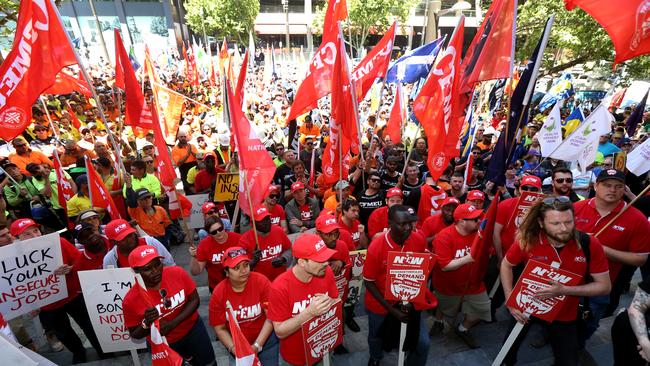
In a series of skirmishes this month, the Australian Nursing and Midwifery Federation escalated action, arguing inpatient units were under severe pressure and unable, at most hospitals, to take patients from emergency departments. But Health Minister Stephen Wade took the nurses’ union to the state employment tribunal and claimed a win for patients when he said the commissioner deemed the original proposed industrial action was a risk to patient safety.
ANMF state secretary Elizabeth Dabars faced accusations that her union had meekly accepted the closure in November last year of the Repatriation General Hospital, as part of Labor’s Transforming Health reforms, and acknowledged she had held brief and fruitless talks about standing for a Labor seat.
As the Victorian ALP branch’s website says when describing the formal affiliation between many – though not all – Australian unions and Labor: “The ALP aims to support trade unions in pursuit of their industrial goals and many unions support the ALP in pursuit of its political goals.”
South Australian Liberals are, historically, suspicious of this relationship and, given Opposition Leader Peter Malinauskas’s long-term role heading the shop assistants’ union, have been keen to portray Labor and the unions as captive to one another’s interests.
BUT SA Unions secretary Joe Szakacs is attempting to turn this on its head, challenging the Marshall Government to “break down some of its own preconceived ideas” and, as the state’s largest employer, recognise that it has a huge role in shaping the vision of what jobs should look like in South Australia.
With some authority, he argues the public service, under both Labor and Liberal governments, has become too reliant on short-term contract employment, particularly in professions like teaching. He says this creates economic uncertainty for often young workers and their families, making things such as attaining a mortgage increasingly difficult.
The stakes are high. State Budget documents list numerous major enterprise agreements due to be renegotiated this financial year. They cover sectors including school and preschool staff, SA Police, nurses and midwives, ambulance officers and infrastructure and maintenance rail employees.
Treasurer Rob Lucas, a wily political veteran whose mantra is to act in taxpayers’ interests, told The Advertiser he was determined to end the “cozy ride” unions had enjoyed under the previous Labor government.
He said he had re-established an industrial relations unit within Treasury to take a whole-of-government approach and responsibility for all enterprise bargaining.
“It’s certainly my view, and the Government’s view, that we need a firm but respectful approach in relation to industrial relations,” he said.
“The unions have had a cozy ride for 16 years under Labor, where effectively union bosses talked to union bosses and said: ‘What do you want?’.
“Under new arrangements, the interests of taxpayers are obviously pre-eminent in these things.”
Mr Lucas said Labor had combined industrial relations and enterprise bargaining roles into the Commissioner for Public Sector Employment position, held since mid-2014 by Erma Ranieri.
The Treasury industrial relations unit is headed by Elbert Brooks, who had been in private practice as a barrister since 2015 after almost 30 years in the public sector, including 13 years as the executive director of public sector workforce relations (2001-2014).
Mr Lucas, who said Mr Brooks’ role was advertised publicly, said the industrial relations unit had resided in the Department of the Premier and Cabinet during the Liberals’ previous stint in government.
He said the reformed unit had major carriage of the prison guards’ dispute and played an advisory role to the Health Department in talks with the nurses.
Another key adviser in the nurses’ dispute has been SA Health’s chief nurse and midwifery officer, Jenny Hurley, who previously was the nurses’ union’s manager of professional programs – a role in which, according to an ANMF statement in January, she performed “with distinction”.
HER inside knowledge of the union’s operations and broad knowledge of its strategy was said to have been crucial in picking apart the detail of the proposed surgery bans and exposing threats to patient safety before the tribunal.
In a statement to The Advertiser, Ms Hurley said her role in the dispute was to advise Mr Wade and SA Health chief executive Chris McGowan about potential safety risks and the impact on nurses and midwives “due to the confusion created as a result of the proposed actions by the ANMF (SA Branch)”.
“My number one and only focus was to protect patient safety,” she said. “The senior nursing and midwifery leadership of this state and I felt compelled to take action because we believed patients would have been put at risk. That’s why we decided to go to the tribunal.
“I am pleased the ANMF called off their proposed action last week and thank the nursing and midwifery leaders in the public health system, who at all times prioritised to provide safe and appropriate care to the South Australian community.”
In return, ANMF state secretary Elizabeth Dabars this week attacked SA Health for postponing non-urgent elective surgery to ease high demand, at a time when the Government accused the union of “placing the community at risk by proposing to postpone only low-level elective procedures for the purposes of lifting the load on the health system”.
Pointedly, Associate Professor Dabars declared the prospect of nurses taking action had been lambasted by “the Minister and his bureaucrats”, yet she argued it had resulted in the Government committing to more than 90 extra beds.
IT IS hard to interpret her references to “bureaucrats” as anything other than a thinly veiled swipe at Ms Hurley – a risky move as she is said to be a popular figure among rank-and-file nurses.
Mr Szakacs said unions had stand-up blues with the former Labor government many times during the past 16 years, noting the WorkCover dispute a decade ago. In 2010, the-then Unions SA boss Janet Giles urged a change of leadership, arguing premier Mike Rann and treasurer Kevin Foley did not uphold “fundamental values to the union movement”, including the rights to protect injured workers and collectively bargain.
Statistics released last year showed 15.8 per cent of SA workers were union members in their main job.
Nationally, unions have launched a campaign to “change the rules so that working people have more secure jobs and better pay”. A rally was held at Parliament House on Thursday as part of a national campaign to flex the movement’s muscle. Mr Szakacs said many industrial laws were federal, but states had a major role to play in issues including criminalising workplace death and throwing employers who steal wages in jail.
“The State Government has a huge part to play in making demonstrable changes that affect the quality of life of working people,” he said.
This is a view with which the newish Liberal Government is likely to agree. However, there also is likely to be some differences about the nature of these changes and their eventual outcomes.
After 16 years of Labor in power, there is a new dynamic shaping these debates and their conclusions.
The key players
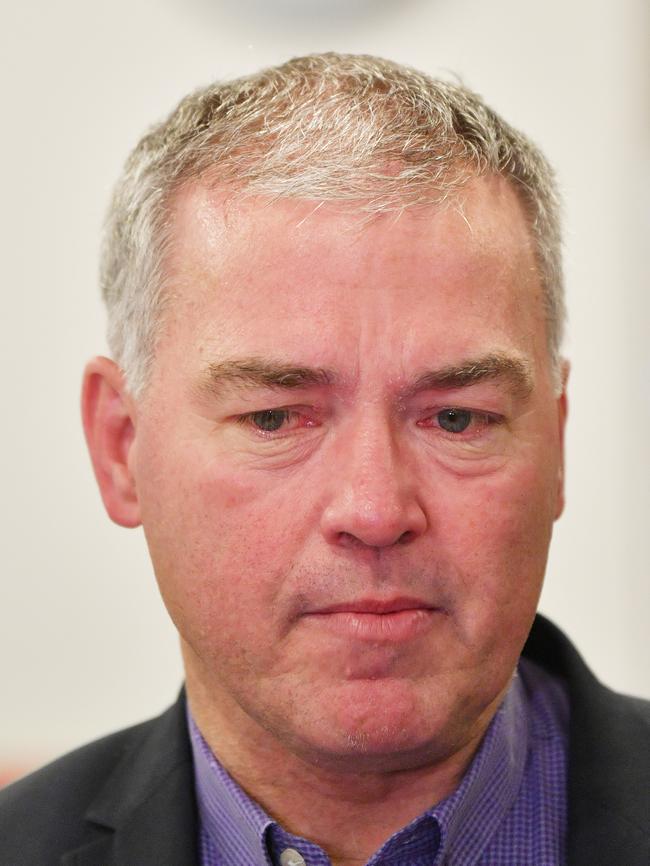
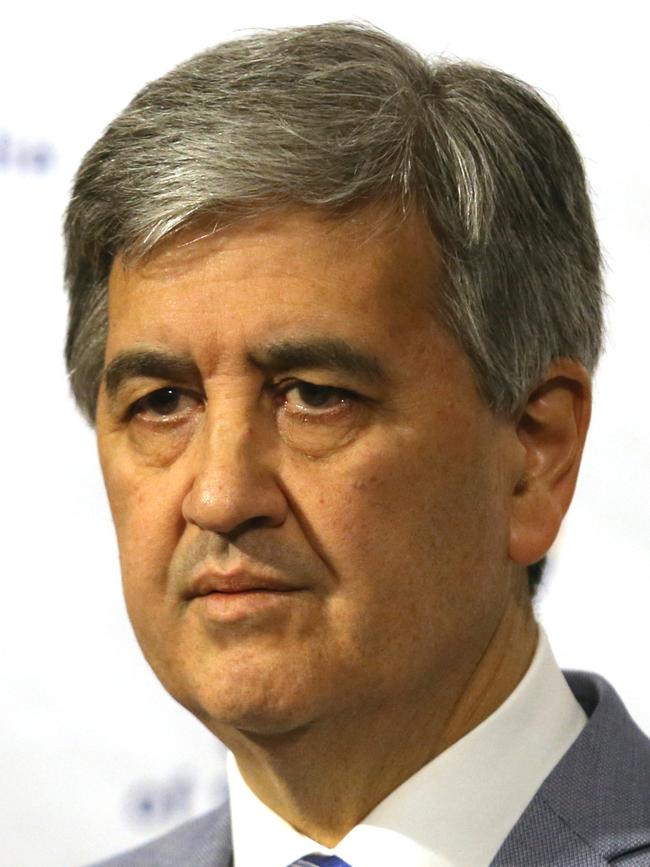
Rob Lucas: Wily political veteran who triggered the prison guards dispute with State Budget plan to outsource Adelaide Remand Centre operations. Spearheaded Government response and was handed gift of vision of striking guards harassing fellow worker.
Stephen Wade: Rookie Health Minister whose political reputation was enhanced by leading Government action to prevent nurses’ union bans on some elective surgery. Helped by chief nurse Jenny Hurley, herself a former nurses’ union official.

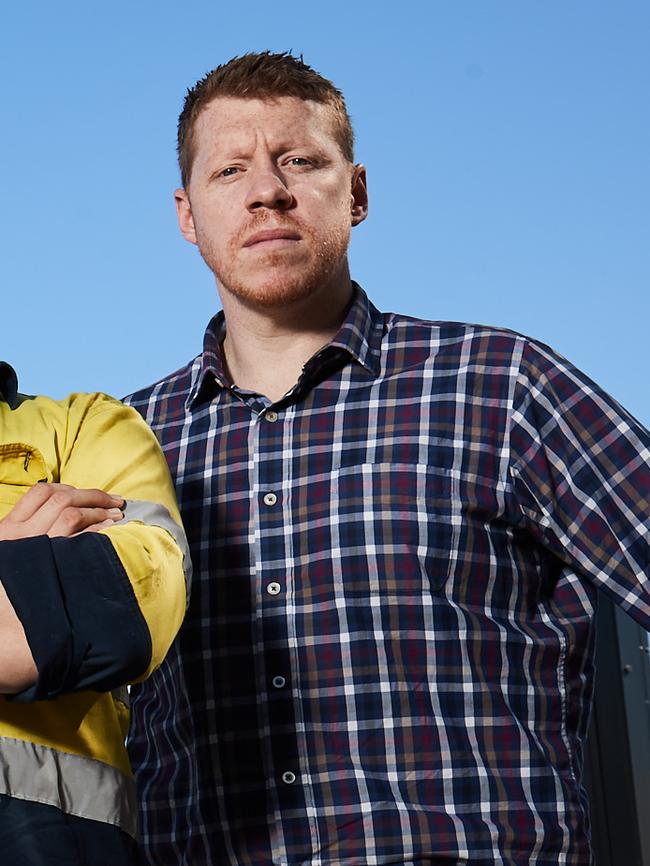
Elbert Brooks: Former barrister returning to role of spearheading State Government industrial relations unit, this time within Treasury. Charged with developing a whole-of-government approach to workplace talks and enterprise agreements.
Joe Szakacs: The SA Unions secretary is challenging the Government to set aside preconceived ideas about unions and take a leading role, as the state’s biggest employer, in demonstrating a vision of quality workplaces.
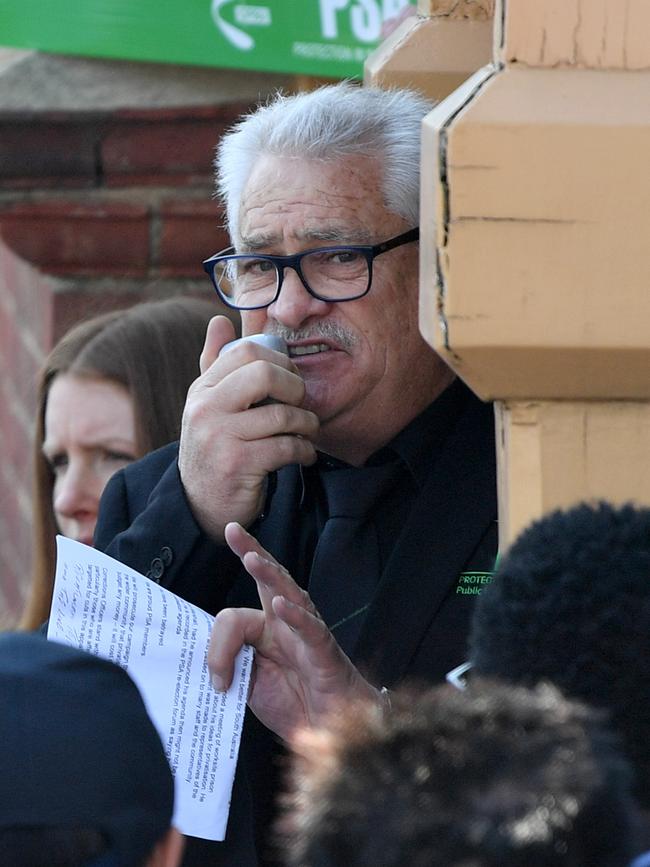
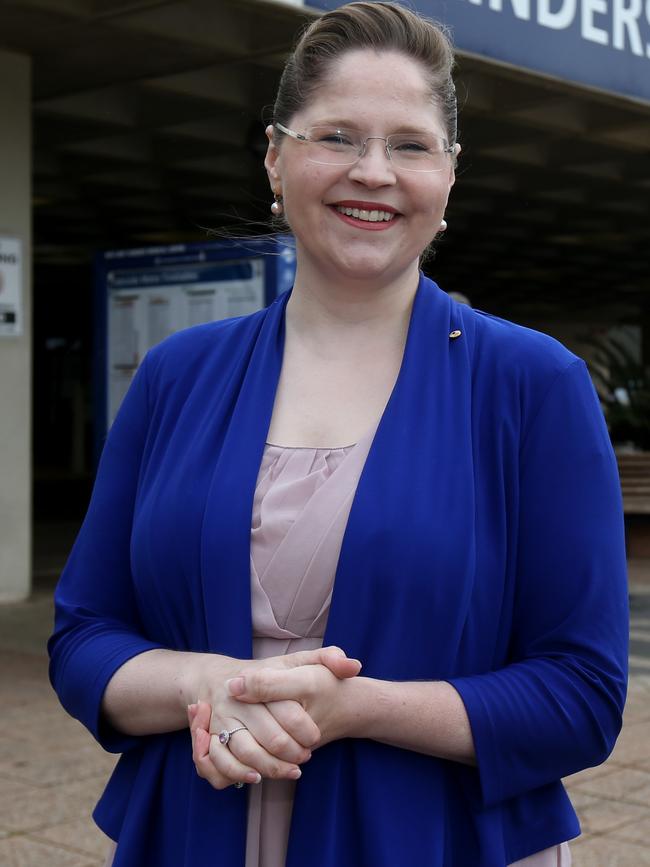
Nev Kitchin: Heads the influential Public Service Association, which includes prison guards. Put on back foot by guards targeting workmate but has raised concerns about prison privatisation.
Elizabeth Dabars: Leads SA branch of Australian Nursing and Midwifery Foundation. Tested Government with threats to ban some elective surgery but backed down on eve of work bans. Faced accusations of meekly accepting Labor health cuts before targeting Liberals for political reasons.

